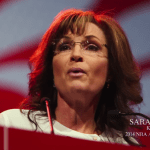It’s a familiar refrain that our political system has grown dysfunctional, even broken. Congress, for instance, has not passed a federal budget since April 2009. The budget the Obama administration presented in February was defeat in May without a single vote from either party. The debt-ceiling crisis is seen by many as a perfect — and utterly depressing — illustration of our political dysfunction. Consumer confidence is tumbling, and the S & P downgrade was explained (or at least rationalized) with reference to our political gridlock and our apparent inability to respond swiftly and decisively to economic crises.
Even President Obama says that “something is wrong with our politics.” Conservatives of course will say that President Obama is a very large part of that problem, while liberals will be more inclined to say that Obama has been battling against the rigidity and hyper-partisanship that has made legislative progress impossible.
Enter Charles Krauthammer, easily one of the most influential columnists in the country today. Krauthammer lacks the poetic flair of a George Will, but his sharp analyses often buck the conventional wisdom and offer a different perspective. Consider his comments on our “broken” political system.
The debt-ceiling debate [is] universally denounced as dysfunctional, if not disgraceful, hostage-taking, terrorism, gun-to-the-head blackmail.
Spare me the hysteria. What happened was that the 2010 electorate, as represented in Congress, forced Washington to finally confront the national debt. It was a triumph of democratic politics — a powerful shift in popular will finding concrete political expression.
But only partial expression. Debt hawks are upset that the final compromise doesn’t do much. But it shouldn’t do much. They won only one election. They were entrusted, as of yet, with only one-half of one branch of government.
But they did begin to turn the aircraft carrier around. The process did bequeath a congressional super-committee with extraordinary powers to reduce debt. And if that fails, the question — how much government, how much debt — will go to the nation in November 2012. Which is also how it should be.
The conventional complaint is that the process was ugly. Big deal. You want beauty? Go to a museum. Democratic politics was never meant to be an exercise in aesthetics.
Is President Obama right that something’s wrong with our politics today, or is that just sour grapes, the excuse-making of a politician who hasn’t been able to accomplish everything he’d wanted? (Krauthammer notes: “Notice how the loudest complaints about “broken politics” come from those who lost the debate. It’s understandable for sore losers to rage against the machine. But there’s no need for the rest of us to parrot their petulance.”)
I don’t think the system is broken, but I do think it’s wounded. We’re so powerfully riven between two competing visions of what America is and should become that we’ve been slowed to near paralysis. It’s not complete paralysis; we are capable of turning the ship to some extent. But it’s close. On the one hand, conservatives believe that our problem is spending, and we should pursue a streamlined government that leaves the broadest possible space for liberty and the free market. On the other hand, progressives believe that our problem is revenue, and we should become more like the European welfare states. Conservatives are not unaware that some nations have higher levels of taxation than we do, but that’s not the kind of country conservatives want. Liberals are not unaware that government spending has skyrocketed, but they think those expenses are justified and we just need to increase federal revenue in order to account for them.
Of course, it’s not unusual — or even unhealthy — to be torn between two competing visions of America. Yet it is unusual to be so evenly split, and so firmly entrenched, that neither side can take significant action to respond to crises.
The other part of the problem, I think, is what Ross Douthat identified in a wise column on Sunday: the constant campaign mode that looks for landslide swings of power, in order to produce the kinds of supermajorities that are needed for one party to enact its agenda, rather than working within the present circumstances to get the best legislation we can. There are many things both parties could agree to right now, including tax reform and modest entitlement reform, if they were not already positioning for the next election.
What do you think? Is our political system broken, or is it working in precisely the messy, slow, but ultimately effective way in which it’s always worked? And are there ways in which Christians can facilitate a more effective political process?














